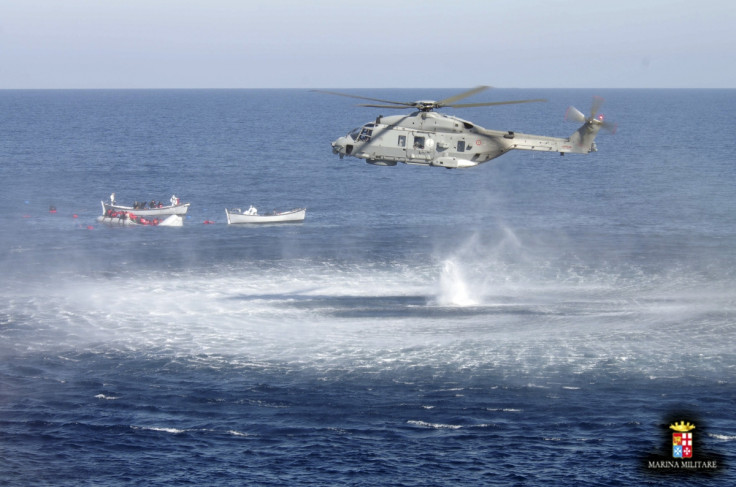Refugee crisis: Nato launches mission to rescue migrants from human smugglers

Nato has finalized a sea mission to counter human smugglers ferrying migrants from Turkey to Greece, as EU members continue to squabble over the handling of the refugee crisis. Five vessels from the navies of Germany, Canada, Greece and Turkey have already been deployed to the Aegean Sea as part of the surveillance operation that was agreed by the alliance's defence ministers earlier in February.
On 24 February, Nato envoys overcame the historic diffidence between Greece and Turkey to define a detailed operational framework that bans forces of the two countries from crossing into each other's territorial waters and airspace.
The vessels from Nato's Standing Maritime Group 2, will conduct reconnaissance, monitoring and surveillance activities, without directly engaging smuggling gangs. "Nato's task is not to turn back the boats," said Secretary-General Jens Stoltenberg.
Information gathered will be passed onto Greek and Turkish authorities as well as to the EU border agency, Frontex. Nato ships are also to take part in rescue operations.
"The obligation to help people in distress at sea is a general, universal responsibility. It applies to all vessels, regardless of whether they are part of a Nato or national mission," said Stoltenberg. "If Allied vessels encounter people in distress at sea, they have to live up to their national responsibility to assist." Rescued migrants who departed from Turkey will be returned there.
The mission was approved after a request from Turkey, Greece and Germany, which is the destination of choice for most migrants. It comes as infighting was escalating within the EU as member states were failing to come up with a joint plan to address the influx of asylum-seekers ahead of the arrival of the spring and its milder weather conditions that make sea crossing easier.
Athens recalled its ambassador to Vienna after Greece was excluded from a summit between Austria and Balkan countries where tougher border controls were announced. Commenting on the decision the Greek foreign ministry said that "big problems of the European Union cannot be dealt with, with thoughts, mentalities and extra-institutional initiatives that have their roots in the 19th century."
Tighten border controls across the Balkans will result in an increasing number of migrants remaining stuck in Greece, where thousands are already stranded at a bottleneck on the Macedonian border.
Numerous EU countries accuse Athens of let letting thousands of migrants through without any supervision, while Greece in turn laments a refugee redistribution system based on quota approved in 2015 has barely been implemented. Prime Minister Alexis Tsipras told parliament his government "will not accept the transformation of our country into a permanent warehouse of souls, while Europe continues to function as if nothing is happening".
About one million people is expected to arrive in Europe this year, according to Frontex. "Right now the unity of the Union and lives — human lives — are at stake," said the EU's migration chief Dimitris Avramopoulos .
© Copyright IBTimes 2025. All rights reserved.






















